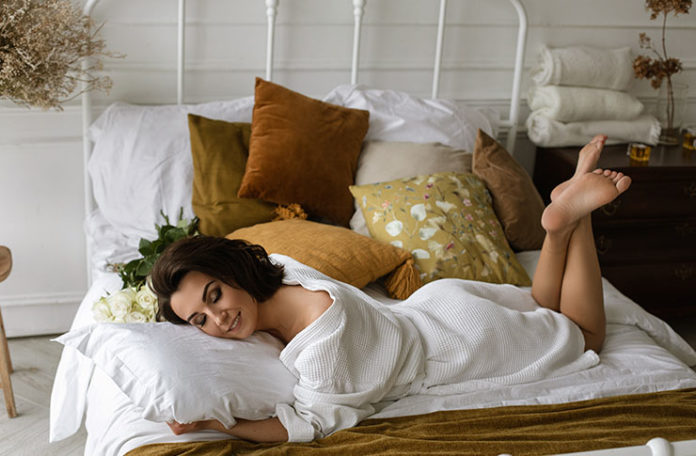
Birds do it, bears do it, even insects do it. Sleep is a fundamental part of life that we simply cannot forego if we are to feel refreshed, rejuvenated and ready to tackle the many things in our day to day; be we a bear, a bug or a human. If sleep is so programmed into our DNA, then why is there so much confusion circulating around the topic? Read on as we delve into the nitty-gritty of sleep and how you can get the most out of your Z’s.
What happens when we lack sleep?
There is an all too common perception that sleep is a waste of time; it is followed by expressions such as, “I’ll sleep when I die” and other references that place sleep in a category of a mundane task one must put up with, fight or control in favour of the preferred “productive” waking hours. However, evidence is mounting that these negative perceptions regarding sleep are erroneous at best and dangerous at worst. While still not fully understood, we now know that poor sleep can have profound effects on our health. Sleep deprivation is linked to shorter lifespans and increased risk for obesity, metabolic syndrome, cardiovascular disease, cognitive decline and depression. Lack of sleep can be so damaging that sleep deprivation can have a similar effect on your body as drinking alcohol. In fact, after 18 hours without sleep our driving is so compromised that it is comparable to having our blood alcohol levels at .05 (.08 is considered drunk).
If that isn’t enough to get you napping, we also now know that sleep is anything but a passive state. Deep sleep helps to solidify memories for better recall, detoxifies our brains and repairs damaged cells and DNA. So it behooves us all to wake up and smell the coffee… but perhaps not to consume too much after 4 pm!
Sleep-Wake Hygiene
Long before turning to sleep pills, there are many habits we can change in order to naturally encourage a healthy sleep-wake cycle. The key to sleep-wake hygiene is routine, routine, routine! Going to bed and waking up at the same time every day can help retrain a confused biological clock. Many cell phones now have settings you can use to shut off all apps at “bedtime” and keep them off until your set waking time. Having no access to apps removes the temptation of distraction; as well, cellphones emit a bright light that keeps our brains awake longer.
When setting up a routine for sleep, the temperature can also play a part. The ideal temperature for sleep is a cool 16-20 degrees Celsius (62-68 Fahrenheit), so adjust your thermometer accordingly; while cotton and silk sheets breathe better and prevent overheating; and it goes without saying that a comfortable bed is key. The best bed will depend on your body type. For example, if you are larger around the buttock area causing an arch in your lower back when lying down, then a softer mattress may be necessary for support.
Dangers of blue light. Artificial lights, in particular the blue spectrum coming from LED light bulbs, cell phones and computer screens, inhibit our natural evening spike in an important sleep hormone called melatonin (necessary to help us cycle efficiently into restorative sleep). The photoreceptors in our eyes and on our skin tell us what time of day it is. With the advent of light bulbs, we now essentially have disrupted the natural transition that occurs with sunset when blue light (part of the natural spectrum of sunlight) disappears. Every hour of blue light suppresses melatonin production for about 30 minutes. If you cannot avoid all electronics two hours before going to bed invest in some blue blocking glasses (or clip ons) and use Apps to set your screens to filter out blue light during those hours. F.lux app for desktop, night shift for iPhone and Twilight App for Android are some examples. Also consider installing some red spectrum night lights.
Getting into the mood
Our brains are interesting and complex mechanisms. They seem to respond well to environmental messages that remind them it is in fact time to go to sleep. Any and all signals we can provide to reinforce our transition from the stressors and stimuli of the day to a calm and mellow environment are helpful. Sleeping in a room free of triggers that signal to our brains that we “Need to be busy or entertained” is a good start. For that reason, it is recommended to remove computers, TV’s, cell phones, ipads and “productive” gadgets from our view and our environment. Moreover, introducing positive rituals to wind us down can be very useful; diffusing lavender, Ylang Ylang or other relaxing essential oils in the bedroom or other rooms you spend time in before bed can begin to create the much-needed association that rest and sleep are setting in.
Flying and shift work
For those who travel frequently or work odd hours, you need to take measures to help mitigate the inevitable toll this can take on your health. Repeated trials have shown that supplementing with melatonin close to bedtime at the travel destination helps to decrease jet lag. This is particularly so for flights crossing five or more time zones and when travelling eastward. For shift workers, melatonin is also recommended along with creating a night-like atmosphere if sleeping during the daytime. However, many people over-consume melatonin- so be conservative. Studies show that for the purposes of sleep, between 0.5 and 5 mg are effective for most people. Use the minimum dose possible that will be effective for you.
Treating the root cause
When dealing with sleep disorders, understanding the root cause of the stressor is the first step in addressing the issue. If stress or anxiety are preventing you from falling asleep then good choices may include the amino acid GABA (in the brain it is our primary inhibitory neurotransmitter), L-Theanine (a green tea extract) or herbs like passionflower, chamomile and skullcap. If your stress is chronic, then additional adaptogens (plants that help balance stress hormones) such as Relora®, Rhodiola, Ashwagandha or Holy Basil should be considered. If insomnia is caused by depression, then St. John’s Wort, SAMe or 5-HTP (especially with fibromyalgia) are possible choices. If sleep disruption is due to menopause then Kava Kava, St. John’s Wort or passionflower can be especially useful; and if muscle tension or spasms are disrupting your sleep, consider the herb Valerian (especially for neck pain), St. John’s Wort (for nerve pain) or magnesium pills, salts or sprays (for muscle cramps).
Still having issues?
If you have tried everything and still cannot get a good night’s sleep you may have an obstacle to cure that you have not yet considered. Make sure you have taken all unnecessary stimulants out of your routine (such as energy drinks and coffee). Genetically speaking, some of us metabolize caffeine so inefficiently that even a morning cup can disrupt our sleep hours later. Consider researching supplements and drugs you are currently using; antihistamines, diuretics, antipsychotics and weight loss products, these can all disrupt our sleep. Also, be aware that although alcoholic beverages such as wine can help us fall asleep they can also prevent us from having a deep and restorative sleep. Dr. Michael Breus (aka The Sleep Doctor) recommends no drinking alcohol within three hours of bedtime. For any further sleep issues and disruptions, consider seeing a professional to rule out sleep apnea, restless leg syndrome or other medical conditions that may unknowingly affect your sleep.











